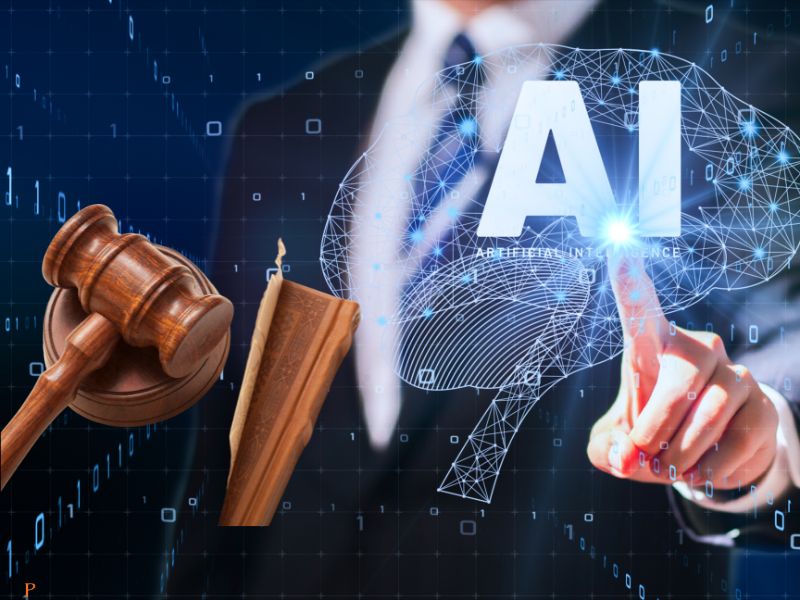.png)

Shruti, a legal journalist, covers business and commercial law. She tracks key legal developments.
February 11, 2025 at 7:52 AM IST
Artificial intelligence, machine learning, large language models and other innovations have become buzzwords dominating discourse around technology. The concern that AI will displace jobs and render many roles redundant looms large as machine learning and AI extend their reach beyond traditional tech sectors. It is not surprising that this newest form of technological advancement has started to influence India’s legal arena; what intrigues me, however, is the potential value AI may add to our legal system.
India’s legal and justice delivery framework has emerged as fertile ground for a burgeoning array of AI-powered legal-tech ventures. A conversation with a developer behind an AI-driven software platform for legal professionals underscored the immense potential of these legal and judicial fields. A search on the internet reveals many “AI-powered” ventures capitalising on this wave, aiming to simplify legal searches, streamline processes, and even aid in legal drafting. Yet, a glaring question remains — does India’s legal and justice delivery system have room, nay need for artificial intelligence?
Generative artificial intelligence, affectionately known as GenAI, soared in popularity in 2023. Industries such as healthcare, retail, finance, customer services, and manufacturing have all recognised the huge potential of artificial intelligence through innovative applications. But, the race to replicate human-level intelligence continues, constrained by one crucial limitation — the human touch.
This limitation may restrict reliance on AI within legal and judicial spheres. The legal profession, in its myriad forms, depends heavily on documentation loaded with legalese, extensive research and nuanced interpretations. A sizeable chunk of legal work, being largely template-driven and research-oriented, stands to benefit from machine learning’s ability to whip up quick drafts and standardised documents. AI can also reduce research time by extracting relevant data. However, the invaluable insights still found in non-digitised, ageing law books remain beyond the reach of AI systems. Ultimately, a young legal professional will still be required to manually sift through these records for a stronger brief and research.
One might argue that once these books are digitised, this aspect of the legal profession could thrive with AI’s aid. Nonetheless, the crux of effective lawyering and justice delivery hinges on a lawyer’s ability to craft a compelling case through legal inferences and interpretations — a task so deeply embedded in human intellect and emotional depth that AI cannot be relied upon to master it. Justice delivery operates in a grey area that demands the discernment of human judgement.
Having covered the law and courts for an extensive period, I know that the role of a judge is fraught with ethical and moral dilemmas, coupled with the responsibility of serving the public good. Decisions profoundly affect lives — a burden too heavy to entrust to a machine. And justice cannot be reduced to a mere template.
No two cases are identical, leaving negligible room for a simplistic, black-and-white approach. Often, critical and sensitive cases spark public discourse. While judges shoulder the entirety of the intellectual burden in deciding a case, AI could serve as an aid to streamline research and fortify legal reasoning.
At present, the best use of AI in the legal industry is in the form of a specialised search engine and as a generative tool for drafting subject-specific documents. However, for a justice delivery system notorious for inordinate delays and in urgent need of a comprehensive reform, AI alone cannot be the answer.




